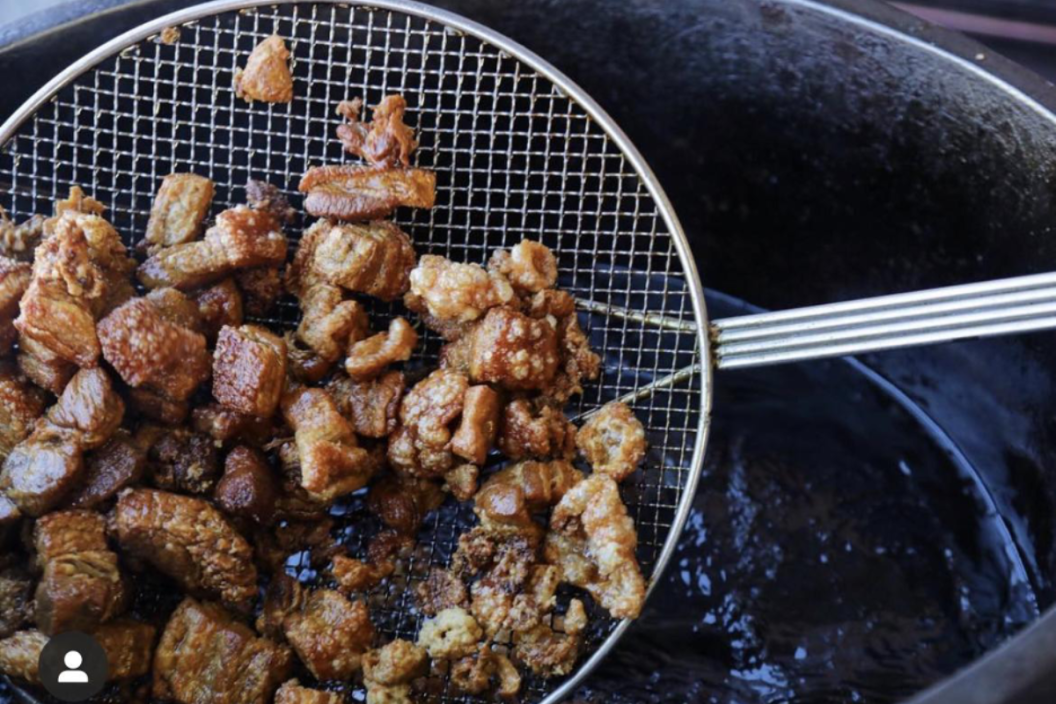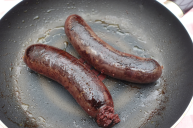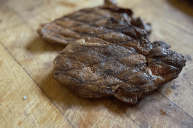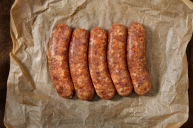Before refrigeration, grocery stores, and modern conveniences, the people of Southern Louisiana had to find ways to nourish themselves safely. Due to the harsh weather and hard labor, protein was paramount for feeding families. Out of necessity, the custom of Boucheries came about, usually held in the fall and early spring as a communal activity. A group of local families would gather to slaughter a hog, and the meat would be divided between them. To keep it fair, each family would take a turn providing the animal for slaughter for la Boucherie.
Videos by Wide Open Country
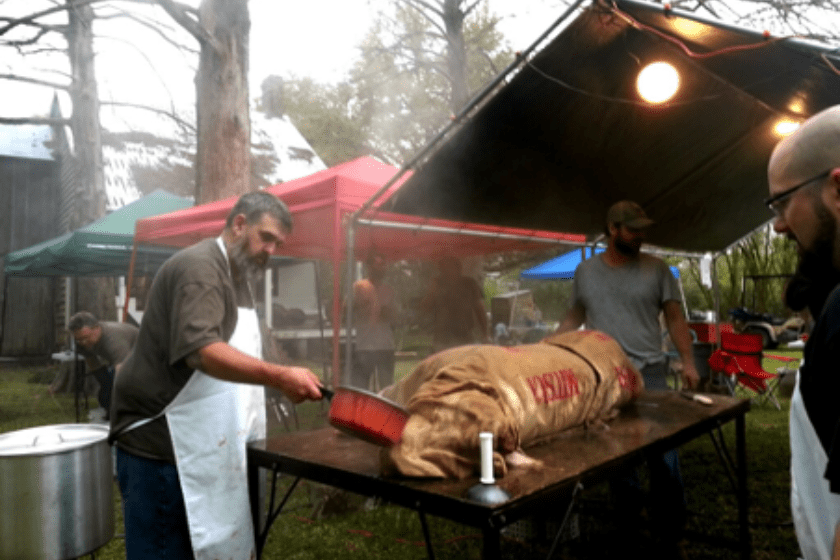
Alan LaFleur
Although la Boucherie was essential to the community years ago as a tool to provide sustenance, today it is a celebration and a moment to enjoy Louisiana culture and each other's company. Along with the slaughter and preparation of the animal are the sounds of impromptu musicians filling the air with traditional cajun tunes and neighbors and friends visiting about the events in the last few months. It's an all-day affair where most enjoy libations as they taste the finished products which are placed on the tables before being packed away.
This communal aspect is why Cajun Musician Alan LaFleur regularly hosts boucheries.
"As a kid, I grew up on farms," says LaFleur. "My grandparents and great-grandparents had farms. As I got older being a Cajun musician, I became sort of a cultural ambassador as I traveled out of Louisiana. Me and a good group of boys started doing Boucheries to share our culture with other people—specifically to teach other people what we do and how we did it."
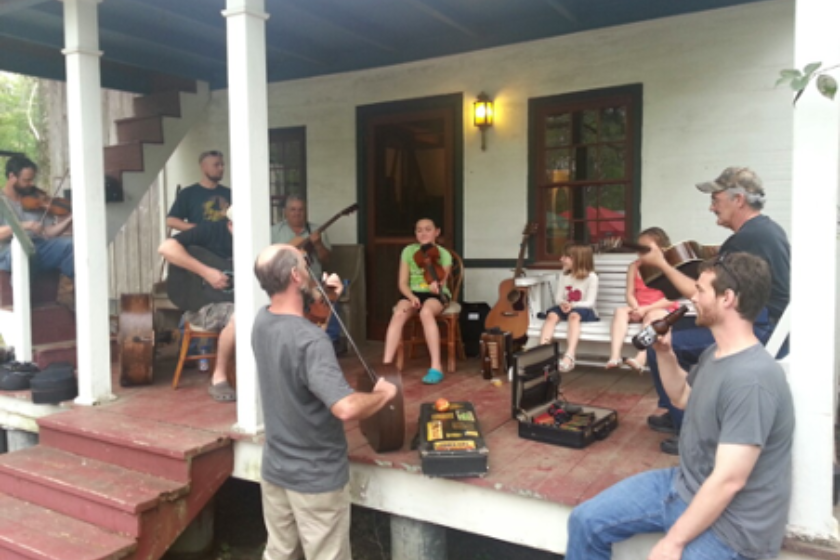
Alan LaFleur
Although we all have refrigeration these days, the traditional boucherie hasn't changed much.
"We have a man of the cloth come out and lead a prayer, thanking the animal," says LaFleur. "We kill the animal as humanely as possible. That's when everybody comes in and gets hands-on. We collect the blood for blood boudin. Immediately after, the hog goes to a table. We use hot water to scald the pig and scrape all its hair off it. As it's scraped we move it to a different table, gut it. We start piecing off different sections to different stations. For example a front shoulder goes to the Boudin station, hind quarter goes to sausage or tasso, the stomach gets cleaned and goes to make ponce, the backbones go to backbone stew or pork chops. At our Boucheries you are handed a piece and sent with your team. For example, if you get the backbones, then you make and teach your team to make backbone stew. Once it's all at different stations, it's like that one pig becomes ten pigs. And there's a whole bunch of people with smiles on their faces just cooking."
Eager cooks will prepare chaudin (stuffed stomach), gratons (cracklins), backbone stew. One section of the party hosts a tall smoker box where folks prepare sausage in a way that was passed to Cajuns from the indigenous Attakapas Indians.
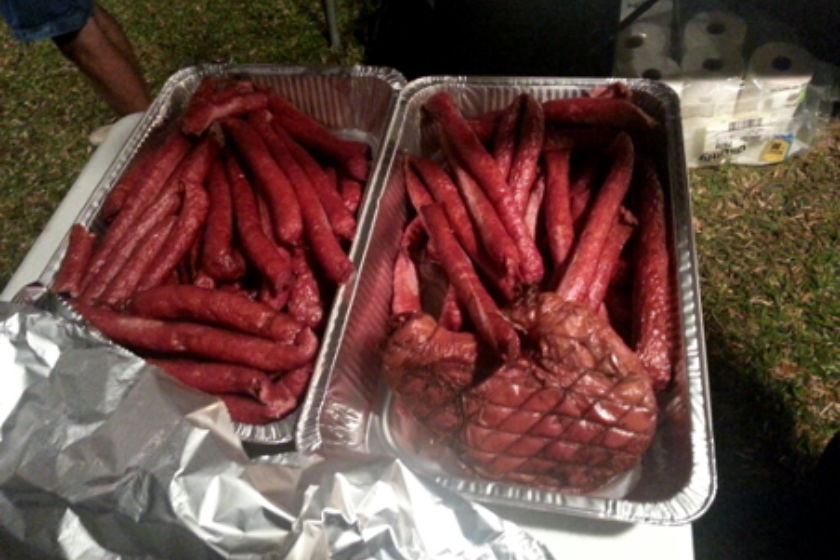
Alan LaFleur
These days boucheries are primarily done at private events and festivals, and are less about feeding the community and more about preserving history for future generations.
"It really embodies how much work it was to survive in the old days," says LaFeur. "There is no way for me to do a Boucherie by myself, there is no way for you to do a Boucherie by yourself. You and your family and your neighbor's family can do a Boucherie and not spoil the meat. That is the Boucherie— it's community, it is everybody's thing. We killed a 550-pound pig and took 26 of us about 5 to 6 hours to fully butcher it and get it to the stations."
"It's super important to have a community for me. It's super important to have other people to do the same thing. Play the same music. All the people around me either play music, cook, or hunt. It's saying, 'hey I can't do this alone.' All those people that come cook with me, we are friends forever. It's a different bond."
There are no spectators in a Boucherie, rather everyone contributes one way or another. Whether slaughtering the hog or minding the children, it's an all-day community-based affair. If you ever get invited to one, pack up immediately and go. Get ready to be bone-tired from all the fun and work you are about to do.
